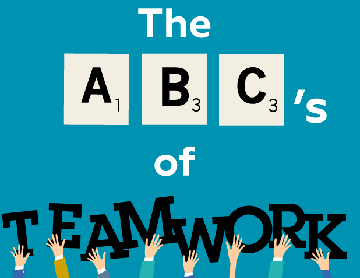Understanding Emotional Intelligence At Work

As with any other relationship in your life, your work relationships can be pivotal to your feelings of contentment, adequacy and success.
However, just as with your personal relationships, your work relationships do not magically become strong and fulfilling overnight. Developing and maintaining them for optimal results can require a special set of skills and attention, skills that are more natural to some than others.
This set of skills tends to fall under the concept of emotional intelligence. This concept was introduced and popularised by psychologists in the 1990s, but business leaders quickly took to the concept and have now made it their own.
Essentially, emotional intelligence refers to the capacity of someone to identify, evaluate and manage their own emotional state, while also being able to correctly identify and manage the emotions of others.
This last point is particularly important when we consider how important being able to correctly ‘read’ others can be in a workplace environment. Depending on the nature of your work, you may interact with people a lot or only occasionally. Regardless of the volume of interaction, when those interactions do happen they can be extremely important to both your individual success and the success of those around you.
Those who do possess higher levels of emotional intelligence often possess a few key advantages over those who are yet to develop this increasingly important skillset. In high stress environments, those with high levels of emotional intelligence are more likely to be able to cooperate with others, manage stress, more consistently resolve conflicts and learn effectively from previous mistakes. Those who actively develop their emotional intelligence are better able to manage the daily stresses of work in a positive way and outperform their peers.
So, what key behaviours do those who possess high levels of emotional intelligence exhibit that separates them from those who do not? There are a few that can be easily identified from the many writings on emotional intelligence in the workplace:
- They practice self-awareness. They are aware of their own shortcomings and are forthcoming about these with others. They are able to recognise strong emotions in others, and be able to clearly determine what has caused others to feel the way they do.
- They self-regulate. Instead of allowing their emotions to control them, they are able to control their reactions to people and situations so they do not have a negative effect upon others.
- They are self-motivated and internally driven. Those with high levels of emotional intelligence are not driven by external factors alone, such as deadlines or fear of failure. They are driven by an internal sense of accomplishment and self-determined standards that push them to achieve more.
- They are highly empathic. They have the ability to recognise, comprehend and experience the emotions of those around them. By doing so, they are able to literally put themselves in someone else’s shoes, increasing the likelihood of positive resolutions to difficult and stressful situations.
- They have great social skills. Those with high emotional intelligence are able to interact and negotiate with a wide range of people. They are able to effectively read people to understand their perspective and adapt their approach accordingly.
In particular, leaders who demonstrate these behaviours are more likely to be successful in their roles, have stronger relationships with their team members and are able to resolve conflict-related issues that arise in any leadership position. While some roles such as Software Developer or Accountant may not have a lot of face-to-face interaction time, the behaviours that come with having a high level of emotional intelligence are absolutely vital to the success of a leader in any field.
Leaders who are self-aware and self-regulate will be seen as reliable, resilient and trustworthy. Those who present themselves as such are more likely to gain the trust of those around them, encouraging a more open and honest working environment that benefits everyone.
Those leaders who are seen as self-motivated will inspire others to find their own internal motivators. By focusing on what makes them happy and content at work, leaders are opening up others to consider what individually inspires and motivates them in their own performance. Team members who are more self-motivated will be more likely to set goals, manage their own performance and direct their energy effectively into high pay-off activities (HPAs) that make them feel active and instrumental to the success of themselves and those around them.
Leaders who are empathic and have highly-developed social skills foster a rapport with their team members as individuals with unique backgrounds, personalities and strengths. Leaders who are able to meaningfully connect with team members as individuals are also able to work through problems with team members as they arise. Work related or personal issues are not simply sidelined or ignored, instead leaders with high emotional intelligence are able to pre-empt the best course of action for those around them.
Great leadership and high emotional intelligence are highly-related. Developing your emotional intelligence will greatly benefit your career prospects, your ability to lead and your work/life balance.
LMA’s associated company, Thrive More, currently offers three distinct Emotional Intelligence short courses that are specifically designed to improve your Emotional Intelligence quickly and effectively. Click one of the links below to find out more or call 1800 333 270.
Applied Emotional Intelligence For Leaders
This in-depth, two day course equips leaders with practical concepts, tools and techniques on how to apply emotional intelligence in the leadership of others.
Applying Emotional Intelligence
Our one day Applying Emotional Intelligence course provides leaders with practical tools and techniques for applying emotional intelligence in the leadership of others.
Emotionally Intelligent Leadership
In this half day introductory course leaders learn about the science of emotions and emotional intelligence and explore practical tools and techniques for applying it in the leadership of others.




